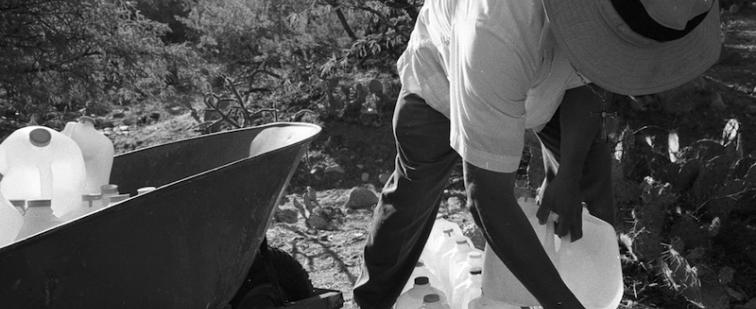Home
A long-time Zapatista supporter responds to an article by journalist John Ross in which he harshly criticizes EZLN spokesman Subcomandante Marcos and dismisses the Zapatistas' Dignified Rage Festival. Klein writes, "Ross criticizes the New York Times article about tourism in Chiapas as a 'self-serving hit piece' and then goes on to write a hit piece himself."
Brazilian President Luiz Inácio Lula da Silva and his Workers' Party (PT) have faced strong criticism from the left since the beginning of Lula's first term in 2003. Although the 2010 presidential elections are still distant, some sectors disillusioned by the Lula administration are already attempting to build a left-leaning alternative to the PT. And, for now, it seems that effort is resonating with the Brazilian electorate.
The ten percentage point victory (55-45%) that President Chávez and his movement achieved on Sunday represents a very important victory for the effort to create socialism in Venezuela. However, Chávez and his supporters ought to recognize that this victory comes with a certain degree of risk because it increases the Bolivarian movement's dependency on its charismatic leader.
With Sunday's Venezuelan referendum on term limits, we can expect to hear a lot about Venezuelan president Hugo Chávez's "plan to become president for life" and its reflection on "Venezuela's battered democracy," as the New York Times editors put it around the time of Venezuela's last (failed) term limits referendum.
Chiapas is threatened by "four horsemen" of development: tourism, biofuel production, oil drilling, and mining projects. As for the Zapatista movement, which recently turned 25, John Ross says it continues to "demonstrate the capabilities of collective action." Nonetheless, Ross claims that Zapatista spokesman Subcomandante Marcos' recent "public posture has been disastrous for the rebel cause."
Minga is a Quechua word meaning “collective work” with wide currency among popular and poor sectors, both indigenous and mestizo, of the Andean republics. The Cauca-based minga of 2008 was grounded in the territorial and cultural demands of Colombia’s indigenous peoples, yet it is a movement that now extends across the Andes, engaging indigenous and non-indigenous sectors in Colombia, Ecuador, Bolivia, and Peru.
Forty-three years ago today, an organization calling itself the North American Congress on Latin America held its first public meeting at New York University’s Loeb Student Center. It was surely unforeseen by those present that, more than four decades later, the building that housed the meeting would have been torn down and replaced, but the organization would still be standing.
Eduardo Joly is a sociologist, wheelchair user, and President of Fundación Rumbos, a nongovernmental organization in Argentina that focuses on accessibility from a human-rights perspective. He is a founding member of the Disability Rights Network in Argentina and Visiting Professor and Researcher, Postgraduate Program on Disability, at the University of Buenos Aires Law School. He is also a former NACLA staff member, from the late 1960s to early 1970s.
In early September, NACLA invited Lesley Gill, Greg Grandin, Deborah Poole, and Mark Weisbrot to participate in a roundtable discussion on the question of proposing a progressive U.S. foreign policy agenda toward Latin America. What follows is an amended version of that conversation, moderated by NACLA director and publisher Christy Thornton.
A multinational mining company's suit against the Salvadoran government may be the opening salvo of a larger struggle against the consequences of free trade agreements in Central America. The legal battle could also have serious political consequences in the country's March 15 presidential elections.












